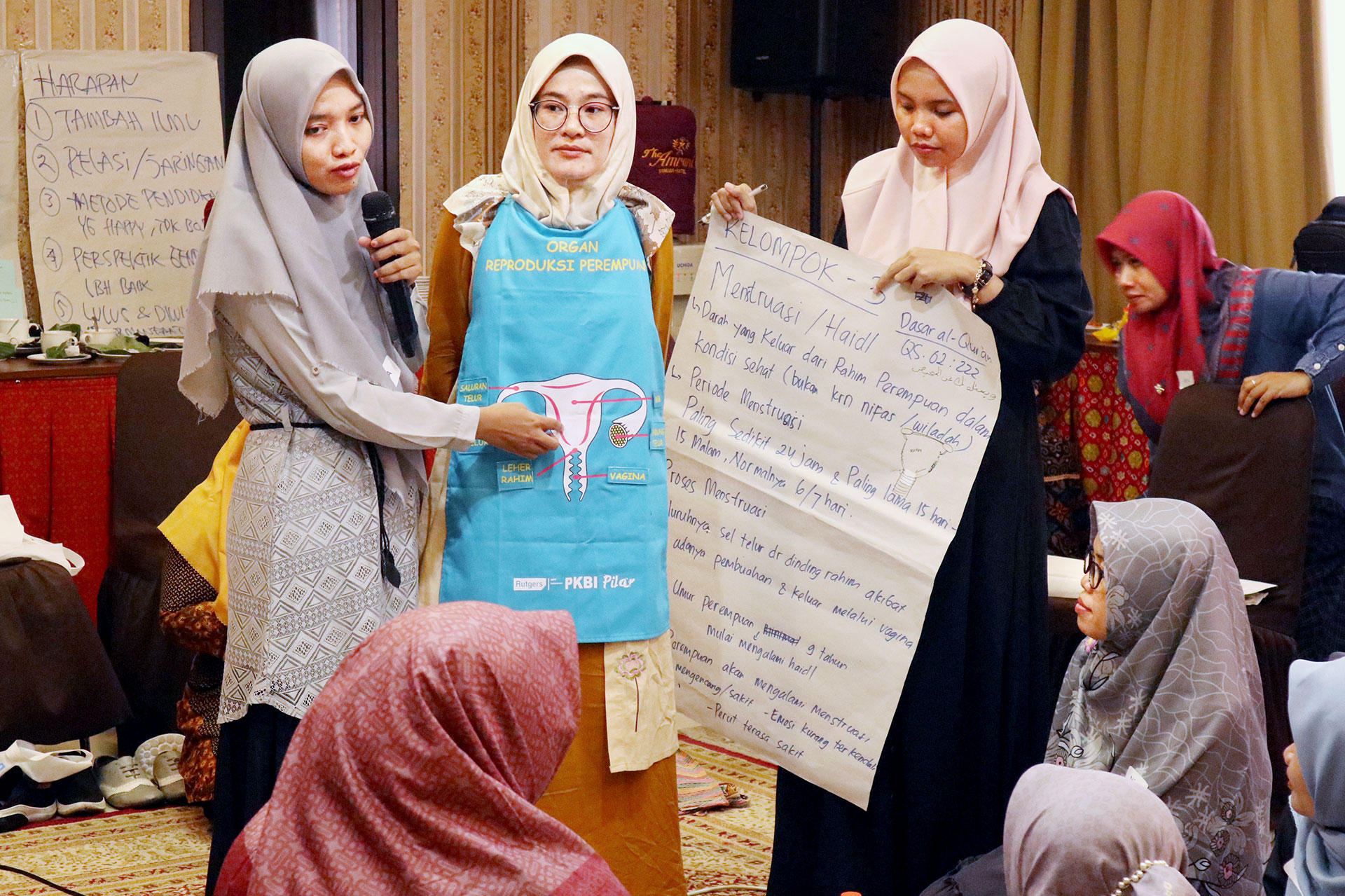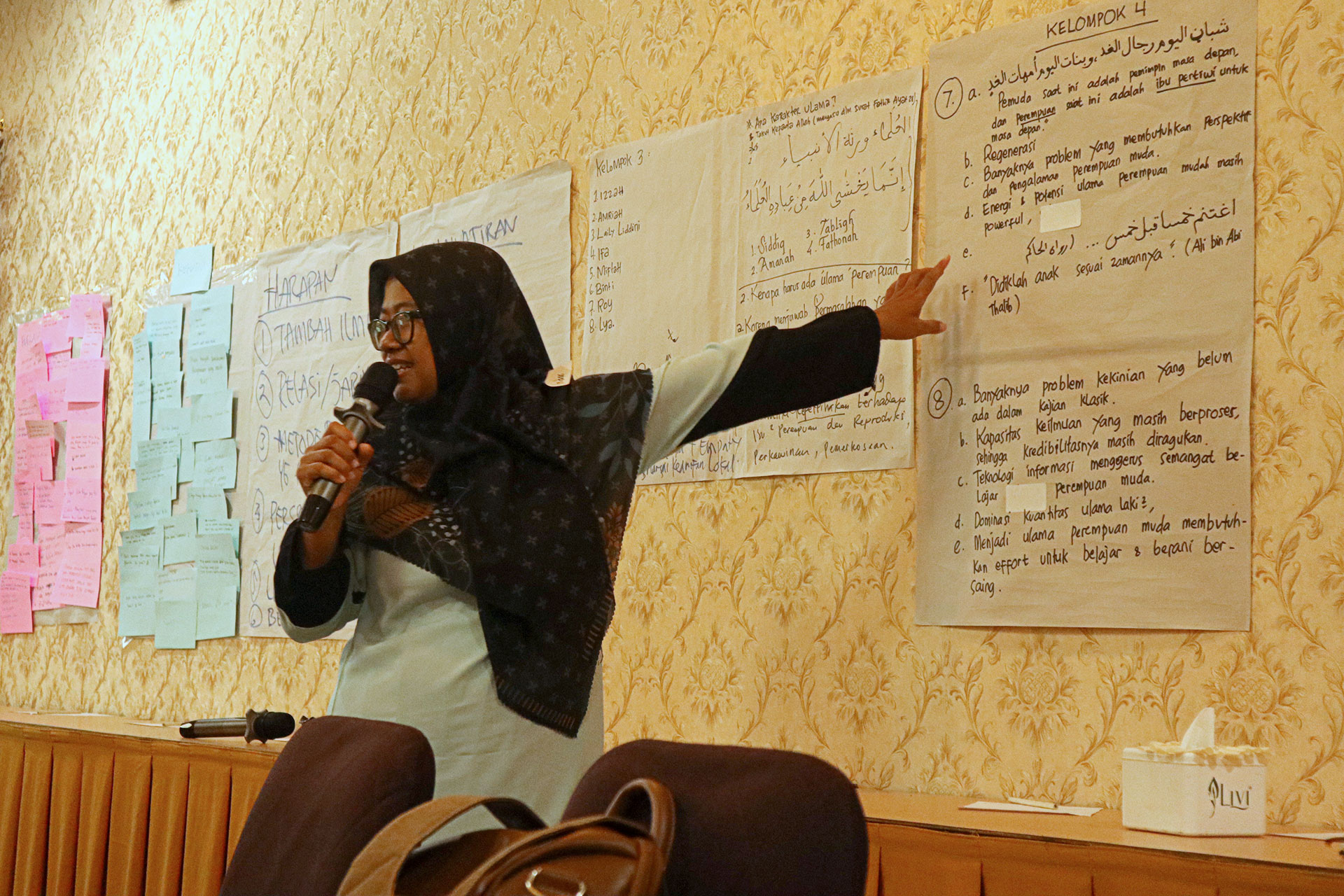There has been considerable progress in gender equality in Indonesia, yet significant challenges remain that impede women from reaching their full potential. The situation is complex, shaped by numerous factors, including culture and religion.
The interpretation of religion often reinforces traditional gender norms and a deeply ingrained patriarchal culture. Traditionally, interpretations of religion have often placed women in subordinate roles to men. For example, the decision in the home is in the hands of the men and then women should obey them.
The gender injustice observed in religious teaching is often the result of the evolving interpretations and practices associated with religion over time, rather than the core teachings of religion itself. Cultural traditions frequently blend with religious beliefs, leading to practices that oppress women.
To address these, Ipas Indonesia, in collaboration with Rahima, launched an initiative to support and strengthen the female Islamic scholars in promoting gender justice with added more perspective on sexual and reproductive health and rights.
Pictured above: The participants of Tadarus 1 in Surakarta, Central Java. Photo by Rahima.
“This effort aims to challenge traditional norms, understanding about the discourse of women sexuality and reproduction in Islamic perspective, and empower women to take active and meaningful roles in their communities and beyond,” Ipas Indonesia’s Advocacy and Policy Officer, Ignatia Gloria said.
Rahima was one of the 16 Ipas Collaborative Fund grantees for 2024.

Established in 1999, Rahima is a local NGO with extensive experience in strengthening the capacity of female religious leaders, known as Ulama Perempuan (women Islamic scholars). This network, primarily composed of Muslim women but also including supportive men and allies, aims to challenge traditional gender norms from an Islamic perspective.
Rahima’s network aims to change this narrative. Their goal is to empower women to become champions of gender justice, inspiring change within their families and communities by deconstructing gender norms from an Islamic perspective.
“Rahima has been introducing gender justice through a method called PUP (Pengkaderan Ulama Perempuan or Women Ulama Education and Transformation). This approach empowers women to confidently discuss and practice gender justice principles,” explains Wanda Roxanne Ratu Pricillia, Rahima’s project coordinator.
So far, the PUP initiative has reached four of Indonesia’s 38 provinces, planting the seeds of change and promoting a more equitable society for all.
The PUP initiative has reached four of Indonesia’s 38 provinces so far.

Tadarus 1 participants present results of group discussion on women’s reproductive health. Photo by Rahima.
She adds that for their collaboration with Ipas Indonesia, PUP Batch 7 is taking place in Central Java. They have conducted Tadarus 1, the first in a series of classes that will continue through Tadarus 5. This program aims to empower women aged 24-45 by addressing key SRHR issues.
To join the PUP, every woman must undergo a selection process. Wanda emphasizes that this process is designed to assess their knowledge, perspectives on gender justice and rights, and their commitment to the program. The selection ensures all participants have a similar understanding of gender justice, creating a cohesive and effective learning environment.
“Usually, the selection process is done offline. This time, for the first time with Ipas Indonesia, it was conducted online. The process includes evaluating written documents, interviews, and reading the Kitab Kuning (Islamic texts that are central to the scholarly traditions at Islamic boarding schools). We also assess gender and social awareness, along with commitment. Only then do we decide who passes,” she adds.
Tadarus 1 aims to sensitively engage participants with key human, social, gender, and SRHR issues. The session also introduces women’s rights, especially within an Islamic context. It emphasizes the andragogy system, empowering women as adults to tailor their study styles and actively participate in the sessions.

A participant shared her understanding of the concept of women scholars and the challenges they face. Photo by Rahima.
The sessions are designed to empower women to voice their thoughts and share their life experiences, starting from childhood. This reflective process helps them explore the concept of gender justice within their own society, providing valuable insights into the diverse experiences of women, both individually and within their communities.
“One lesson from these sessions is that not all networks or communities appreciate women’s experiences. Tadarus 1 is all about building sisterhood, helping women find new friends and realize they are not alone in their activism,” she explains. 65% of the participants from Tadarus 1 consist of young women under 35 years old. This is an empowering space for young Islamic scholars to building network of progressive Muslim and spread the discourse about gender justice to more young people out there.
She also emphasizes the importance of developing modules to strengthen the women Islamic scholar network. These modules are crucial for her organization as they focus on engaging women in deconstructing gender norms. Her organization continuously revises the modules based on insights gained from each session, ensuring they remain relevant and effective.
%


